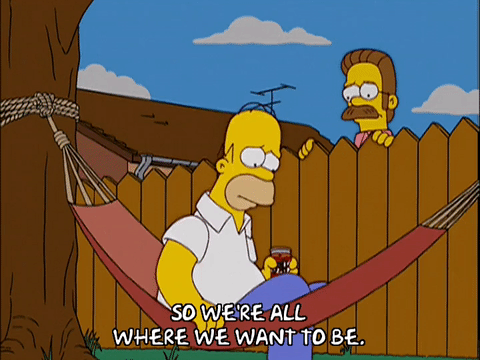“It Doesn’t Necessarily Follow That A World Without Work Would Be Filled With Malaise”
June 29, 2016 in Excerpts, Politics, Science/Tech, Urban Studies | Permalink
For those raised under capitalism who’ve absorbed the teachings of that system, a post-scarcity Second Machine Age sans labor is awfully difficult to envision. It’s essentially the technology-driven collapse that Karl Marx envisioned. Something has to replace the work that disappears, doesn’t it? Some mixed blessing for us to enjoy/endure? Even if intelligent machines can somehow make such a tiol-free scenario possible, we’re not even sure that we want it. Few aspire to drudgery. but genuine productivity feels good.
Eventually and maybe not gradually enough to make the transition smooth, we’ll be inside a new machine that operates under different rules, and we’ll have to likewise reinvent ourselves. Right now the spectre of mass technological unemployment has allowed the idea of Universal Basic Income to capture hearts and minds in Silicon Valley, discussion that has reverberated far beyond that well-appointed patch of Silicon Valley, even into the Oval office. Not all the plans are equal–or even good–but they are being discussed in halls of power.
Two excerpts below from: 1) President Obama discussing Basic Income in a Bloomberg interview, and 2) Ilana E. Strauss’ Atlantic piece about the possibility of a labor-free society that doesn’t promote ennui.
From Bloomberg:
Question:
Some economists suggest that globalization is going to start targeting all those services jobs. If you want to keep up wages in that area, doesn’t it push us toward something like a universal basic income?
President Obama:
The way I describe it is that, because of automation, because of globalization, we’re going to have to examine the social compact, the same way we did early in the 19th century and then again during and after the Great Depression. The notion of a 40-hour workweek, a minimum wage, child labor laws, etc.—those will have to be updated for these new realities. But if we’re smart right now, then we build ourselves a runway to make that transition less abrupt, because we’re still growing, and we’re beating the competition around the world. Look, for example, at smart cars, where the technology basically exists now. The number of people who are currently employed driving vehicles of some sort is enormous. And some of those jobs are pretty good jobs. You know, people are worried about Uber, but the fear is actually driverless Uber, right? Or driverless buses or what have you.
Now, there are all kinds of reasons why society may be better off if smart cars are the norm. Significant drops in traffic fatalities, much more efficient use of the vehicle, so that we’re less likely to emit as much pollution and carbon that causes climate change. You know, drastically reduced traffic, which means we’re giving back hours to families that are currently taken up in road rage. All kinds of reasons why we may want to do that. But if we haven’t given any thought to where are the people who are currently making a living driving transferring into, then there’s going to be deep resistance.
So trying to separate out issues of efficiency and productivity from issues of distribution and how people experience their own lives and their ability to take care of their families, I think, is a bad recipe. It’s not an either/or situation. It’s a both/and situation.•
From Strauss:
People have speculated for centuries about a future without work, and today is no different, with academics, writers, and activists once again warning that technology is replacing human workers. Some imagine that the coming work-free world will be defined by inequality: A few wealthy people will own all the capital, and the masses will struggle in an impoverished wasteland.
A different, less paranoid, and not mutually exclusive prediction holds that the future will be a wasteland of a different sort, one characterized by purposelessness: Without jobs to give their lives meaning, people will simply become lazy and depressed. Indeed, today’s unemployed don’t seem to be having a great time. One Gallup poll found that 20 percent of Americans who have been unemployed for at least a year report having depression, double the rate for working Americans. Also, some research suggests that the explanation for rising rates of mortality, mental-health problems, and addiction among poorly-educated, middle-aged people is a shortage of well-paid jobs. Another study shows that people are often happier at work than in their free time. Perhaps this is why many worry about the agonizing dullness of a jobless future.
But it doesn’t necessarily follow from findings like these that a world without work would be filled with malaise.•
Tags: Barack Obama, Ilana E. Strauss
Subscribe to my free, monthly Substack newsletter, "Books I Read This Month." Some new titles, some older, some rare.
Categories
About
Afflictor.com is the website of Darren D’Addario. Except where otherwise noted, all writing is his copyrighted material. ©2009-18.

